College of Human Sciences
2018 Mentorship Programme ends on a high note
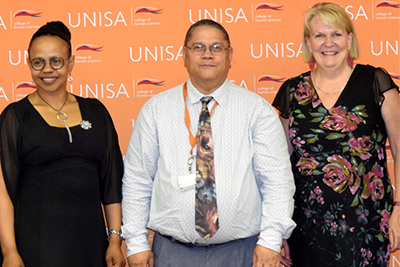
Pictured at the College of Human Sciences mentorship graduation are Prof Thenjiwe Meyiwa (Vice-Principal for Research, Postgraduate Studies, Innovation and Commercialisation), Prof Andrew Phillip (Dean: College of Human Sciences), and Dr Britta Zawada (Deputy Dean: College of Human Sciences).
“The entire mentorship programme or induction makes new employees aware of the academic and institutional context in which they operate. Therefore, I urge young academics who have successfully completed this year’s mentorship programme to effectively use the knowledge and skills that they have gained to make positive and long lasting contributions to their new environment” said Unisa’s Vice-Principal for Research, Postgraduate Studies, Innovation and Commercialisation, Professor Thenjiwe Meyiwa at the mentorship programme graduation ceremony.
The mentorship programme in the College of Human Science developed as an idea by the College management. The aim was to assist newly appointed academics to improve their standing, while inculcating a culture of hard work, accountability and productivity. The programme started in the College with the support of the HRD office in 2009. In 2014, the programme was re-imagined after five successful years of supporting young academics.
In 2015, the CHS mentorship programme continued to run independently of the HRD office, using academics within the College to train and mentor newly appointed academics. From 2009, the College has successfully run eight formal structured mentoring programmes.
After weeks of hard work, dedication, attending classes and engaging in numerous discussions, the College of Human Sciences 2018 mentorship programme concluded at a formal graduation ceremony on 15 November 2018. The graduation ceremony signaled the end of a structured and intense programme which required newly appointed academics to attend a stipulated number of classes and sessions in order to be taught and enculturated into Unisa’s culture and manner of operation.
These sessions were also a platform for mentees to share knowledge, experiences and challenges that relate to how they are adapting to an ODeL institution such as Unisa. The graduation ceremony was attended by both mentees and their mentors and they were awarded certificates of successful completion of the structured mentorship programme. It was indeed a proud moment for both mentors and mentees as they received their certificates and also engaged in a pleasant moment of picture taking.
Speaking at the graduation ceremony, Mr Baloyi from the English Studies Department said: “I felt privileged to be mentored by experts in academia. It was also an adventurous and fruitful experience in the sense that mentors gave us the space to grow and mature into well-seasoned and responsible academics”. Mr M Diko from the Department of African Languages echoed these same sentiments adding that “time for me was an issue because some classes on the programme clashed with other work commitments. However, I made it work and I am grateful for the experience and exposure I got.” Elaborating on her experiences, Dr MJ Tellie from the Health Studies Department said: “The programme presented a crucial learning curve for me which I found rewarding and stimulating.”
The common feeling amongst the mentees was that of being highly appreciative of the relationships and friendships they have formed during the mentorship programme and agreed that these will continue well beyond the graduation ceremony. The mentees were also grateful to the CHS and their mentors for allowing them the space to learn more about Unisa through the mentorship programme.
Executive Dean of the College of Human Sciences, Prof Andrew Phillips said: “The mentorship programme is an important part of the CHS and it is aimed towards enabling colleagues from various institutions to ease them into an environment that is different from other universities.”
Prof Phillips further encouraged mentees to believe in their potential and not sell themselves short. Thus, reaching the apex of their academic careers is indeed possible as long as mentees effectively and continually apply themselves in their new academic context. It is therefore anticipated that the mentees who graduated for this year’s programme will one day become mentors themselves and contribute towards a pool of academic excellence at Unisa.
* By Siyabonga Mfuphi (Department of Communication Science, College of Human Sciences)
Publish date: 2018-12-13 00:00:00.0


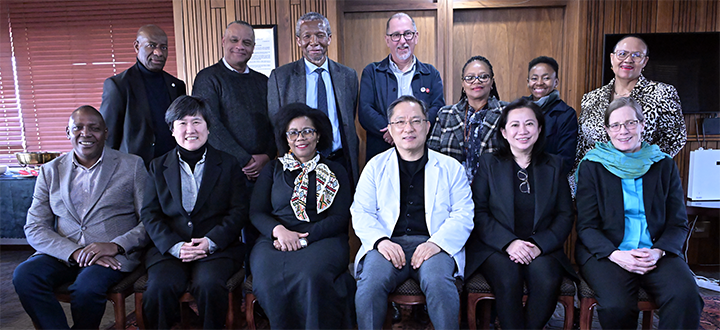 Unisa wins bid to host IAMS General Assembly
Unisa wins bid to host IAMS General Assembly
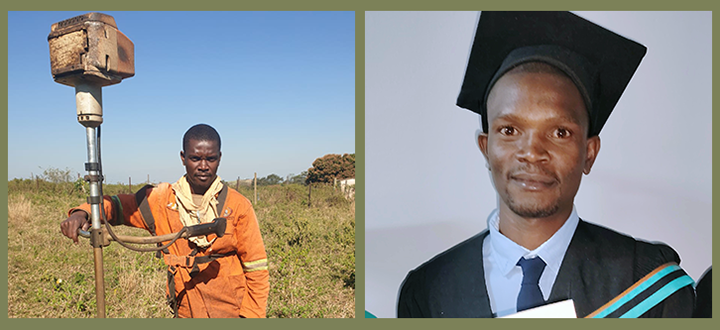 Cutting grass by day, pursuing Unisa studies by night
Cutting grass by day, pursuing Unisa studies by night
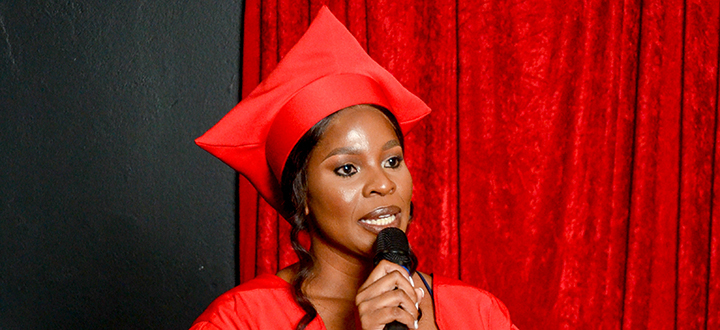 Unisan’s research set to improve accident records management through AI
Unisan’s research set to improve accident records management through AI
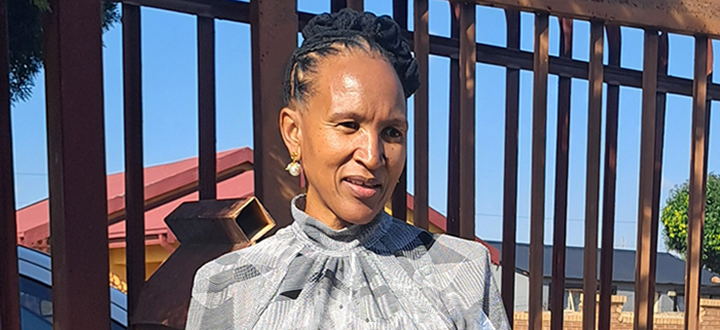 Koma e wetse: When tradition meets the harsh realities of modern livelihoods
Koma e wetse: When tradition meets the harsh realities of modern livelihoods
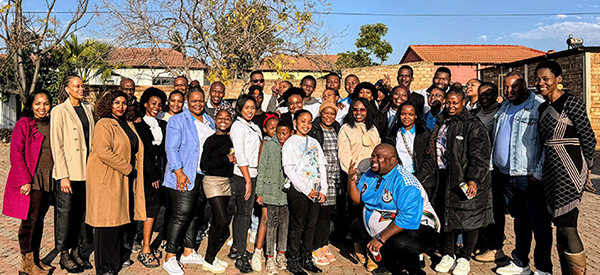 Imbizo inspires youth
Imbizo inspires youth